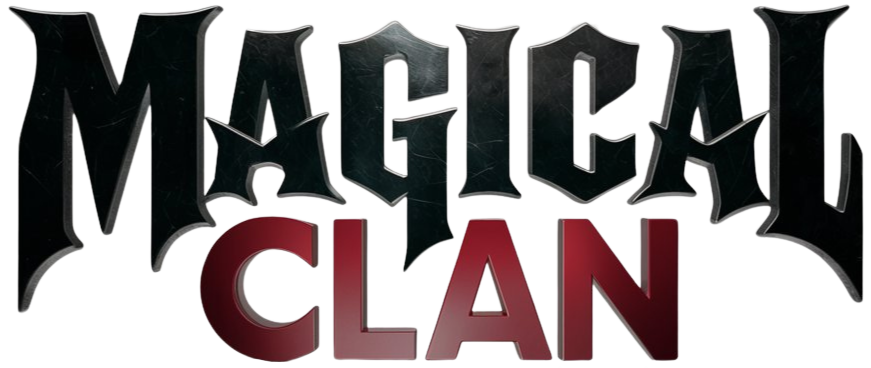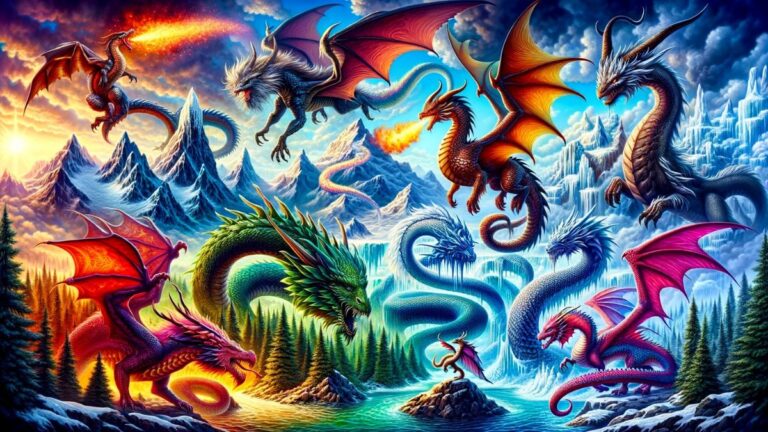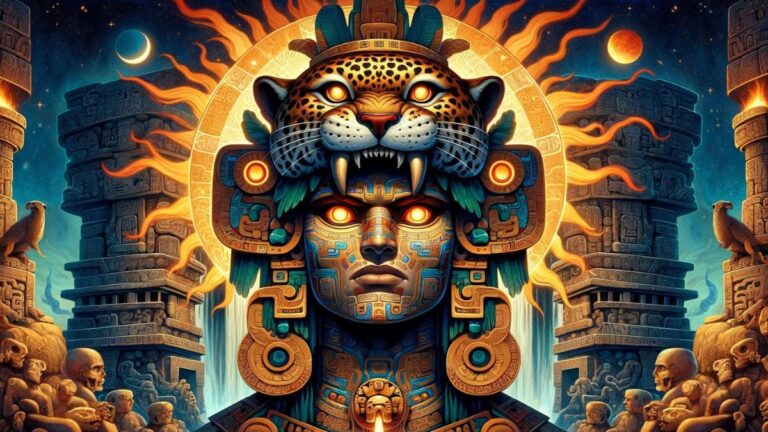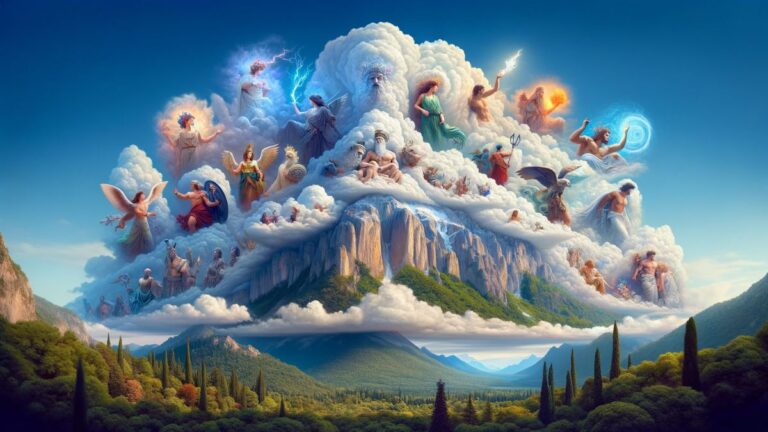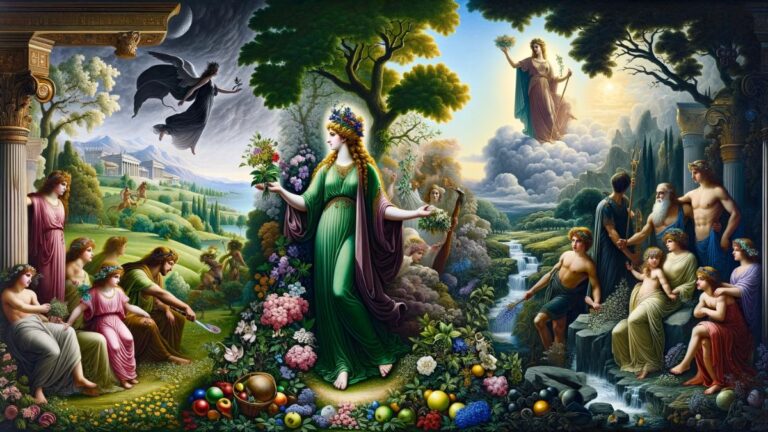Oceanus Family Tree: The Endless Flow of Oceanic Offspring

Oceanus, a primordial Titan in Greek mythology, stands as the personification of the endless, world-encircling river that bears his name. Known for his remarkable progeny, Oceanus’ family tree is as vast and flowing as the waters he represents. In this article, we delve into the depths of his lineage, exploring the myriad connections and fascinating stories of his descendants. From the powerful river gods to the enchanting Oceanids, each member of Oceanus’ family plays a unique role in the tapestry of ancient myths. Let’s embark on a journey to unravel the endless flow of Oceanus’ oceanic offspring, where each wave of story reveals more about this Titan and his impact on Greek mythology.
Oceanus’s family tree
- Oceanus
- Titan god, son of Uranus (Sky) and Gaia (Earth).
- Brother and husband of Tethys.
- Children of Oceanus and Tethys
- River Gods (Sons)
- Achelous (River in Greece).
- Alpheus (River in Greece).
- Scamander (River near Troy).
- Simoeis (River in the Troad).
- Meander (River in Asia Minor).
- Plus over 3,000 other river gods, each representing a different river.
- Oceanids (Daughters)
- Styx (River of the Underworld).
- Dione (Goddess, sometimes said to be the mother of Aphrodite).
- Metis (First wife of Zeus).
- Electra (Ancestor of several royal lines).
- Maia (Mother of Hermes).
- Eurynome (Mother of the Charites with Zeus).
- Doris (Wife of Nereus, mother of the Nereids).
- Callirrhoe (Nymph).
- Clymene (Nymph, often associated with Prometheus).
- Perseis (Mother of Circe and Aeetes).
- Idyia (Wife of Aeetes).
- Plus approximately 3,000 other Oceanids, each associated with different aspects of water.
- River Gods (Sons)
Oceanus: The World-Encircling River Titan
Oceanus stands as a colossal figure in Greek mythology, known as the Titan god of the great, world-encircling river. Born from Uranus (Sky) and Gaia (Earth), he was one of the original Titans. Unlike his Titan siblings, Oceanus did not participate in the Titanomachy, the war against Zeus. He represents not just a physical body of water, but also the concept of the earth’s unending oceans. Oceanus is typically depicted as a serene, bearded figure, with the lower body of a serpent, signifying his dominion over all waters. His importance in mythology is paramount, as he symbolizes the world’s waterways, connecting every corner of the earth.
Tethys and Oceanus: A Union of Waters
The marriage between Tethys and Oceanus is a symbolic fusion of water’s powers in Greek mythology. They produced a vast number of children, including 3,000 Oceanids (nymphs of the sea) and as many river gods. This union signifies the intertwining and inseparable nature of all water bodies on Earth. Tethys and Oceanus’ relationship is a critical element in ancient Greek cosmology, representing the balance and harmony of the natural world. Together, they encompass the entirety of the world’s fresh and salt waters, making their influence ubiquitous in the mythological narratives.
The Mighty River Gods: Oceanus’ Sons
Oceanus fathered numerous river gods, each representing a major river in the real world. These gods included such notable figures as the Nile, Alpheus, and Scamander. Each river god was a distinct entity, often depicted as a powerful, bearded man. They were integral to the regions they flowed through, providing not just physical sustenance but also spiritual significance. These river gods frequently interacted with other deities and heroes in Greek mythology, often playing pivotal roles in various myths and legends. Their stories highlight the importance of rivers in the ancient world – as sources of life, boundaries, and spiritual pathways.
The Oceanids: Daughters of Oceanus
The Oceanids, daughters of Oceanus, were nymphs representing various aspects of water. They numbered 3,000, each symbolizing different freshwater and marine elements like springs, dews, and rainbows. Notable Oceanids include Styx, the river of oaths, and Metis, the first wife of Zeus. These nymphs were portrayed as beautiful, ethereal figures, deeply interconnected with the natural world.
They played significant roles in various myths, embodying the characteristics of the waters they represented. The Oceanids’ presence in mythology illustrates the ancients’ reverence for water in all its forms, viewed as life-giving, mysterious, and sometimes treacherous.
Legends of the Deep: Oceanus’ Offspring in Myth
Oceanus’ offspring, particularly the river gods and Oceanids, feature prominently in Greek mythology. Their stories are diverse and rich, intertwining with the tales of gods and heroes. For example, the river god Alpheus’ pursuit of the nymph Arethusa is a tale of unrequited love and transformation. Achelous, another river god, battled Heracles over the hand of Deianira. These narratives not only entertained but also conveyed moral and ethical lessons, reflecting the Greeks’ deep connection with their natural environment. The myths of Oceanus’ children reveal a world where the divine and the natural are seamlessly intertwined, each story a wave in the vast ocean of Greek mythological tradition.
Oceanus’ Influence in Greek Mythology
Oceanus holds a unique place in Greek mythology, representing the endless, interconnected flow of the world’s waters. His legacy is seen in the vast network of his divine offspring, symbolizing the myriad ways water impacts life. Through his children, Oceanus’ presence is felt in every river, spring, and sea, underlying the importance of water in Greek cosmology. His influence extends beyond mythology into art, literature, and culture, reflecting humanity’s enduring fascination with the natural world. Oceanus’ stories and those of his descendants are not mere myths; they are reflections of human awe and understanding of the vital force of water, an element as ancient and enduring as the myths themselves.
